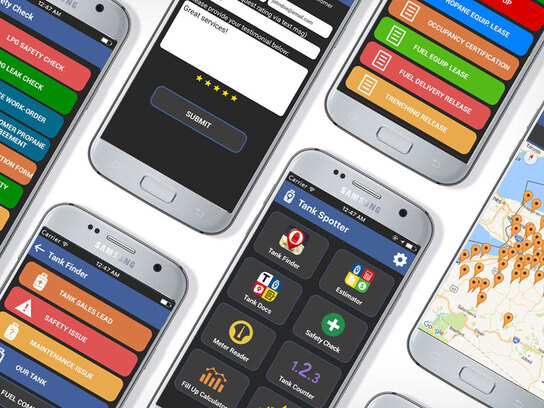Embracing Tech Innovations in Propane Delivery

In an era where technology permeates every sector, the propane delivery industry is experiencing a transformative wave of innovations. These advancements are not merely shaping current operations but are also pivotal in steering the future direction of the industry. Adapting to these changes is no longer optional for propane delivery businesses; it’s a necessity for those looking to stay competitive and meet the evolving demands of consumers. This article delves into the significant technological trends and how companies are integrating these innovations into their operations.
Technological Disruptions in Propane Delivery
The propane delivery process, traditionally manual and often cumbersome, is undergoing rapid digitization and automation. From the way orders are received and processed to the actual delivery and subsequent follow-ups, technology is changing the game. These changes are driven by the need for efficiency, cost reduction, customer satisfaction, and enhanced safety protocols.
Key Technological Advancements
Several innovations stand out for their impact on the industry:
1. Digital Order Management:
Gone are the days of paper-based scheduling and record-keeping. Digital platforms now enable seamless order placement, scheduling, and tracking, which enhances transparency and efficiency. These systems automatically record customer data, consumption rates, and service history, thereby greatly streamlining operations.
2. Route Optimization Software:
These sophisticated software systems use real-time data and analytics to devise the most efficient delivery routes, considering factors such as traffic, weather conditions, and vehicle capacity. They ensure timely deliveries, reduce fuel consumption, and save valuable time.
3. Remote Tank Monitoring:
IoT-enabled sensors attached to propane tanks provide real-time data on fuel levels, allowing companies to monitor consumption remotely. This technology enables predictive refilling, preventing run outs and emergency refills, and ensuring customers have a consistent supply.
4. Automated Safety Inspections:
Technological advancements facilitate rigorous safety checks. Automation in this critical area reduces human error, ensuring that storage tanks and delivery vehicles meet industry safety standards. This practice significantly mitigates risks associated with propane storage and transportation.
5. Mobile Applications:
Apps are increasingly commonplace, enhancing customer engagement and service accessibility. Customers can order refills, check delivery status, pay bills, and access safety information, all at their fingertips. For businesses, mobile applications improve communication and customer satisfaction levels.
6. Drones and Advanced Delivery Systems:
Experimental technology, such as drones, is being tested for monitoring large propane storage sites and performing remote deliveries. While still in nascent stages, this technology holds the promise of revolutionizing delivery mechanisms in the future.
Navigating the Change
Adopting these technological advancements requires an openness to change and investment in new systems. Companies need to train their workforces to adapt to digital transitions, ensuring they can efficiently use new tools. This investment significantly pays off by reducing operating costs, improving service quality, and enhancing safety protocols.
The integration of advanced technology is redefining the propane delivery industry. These innovations are not just improving operational aspects for companies but are also elevating the customer experience. Businesses within this space must recognize these advancements not as challenges but as opportunities to optimize their operations, expand their service offerings, and future-proof their models in the competitive market landscape.
In this ever-evolving industry, staying abreast of technological trends and adapting to them swiftly is the key to maintaining market leadership and meeting the sophisticated demands of the modern consumer. The future belongs to those who innovate, adapt, and embrace the digital transformation wave.














